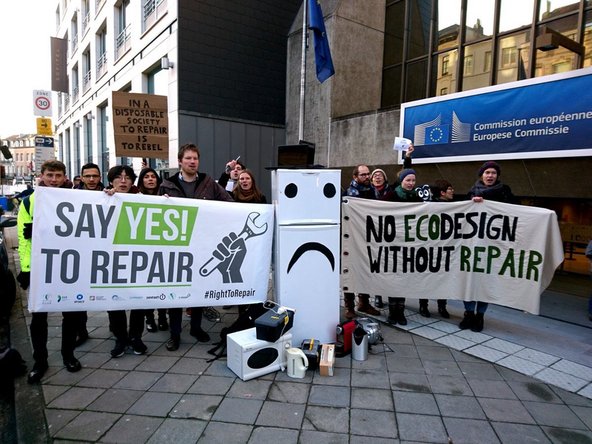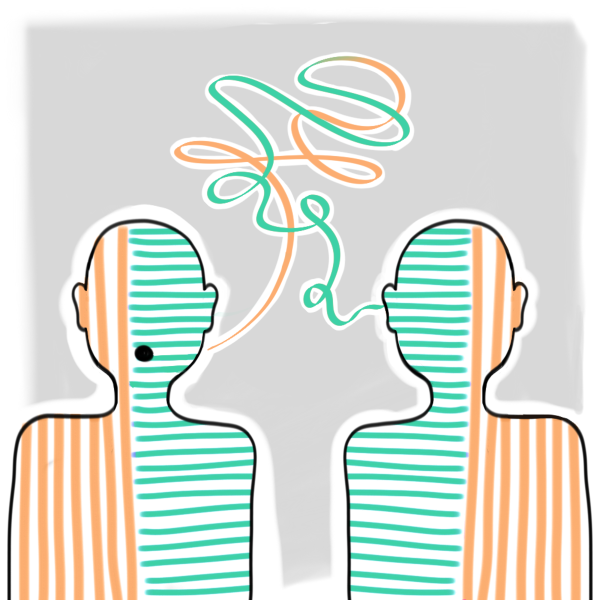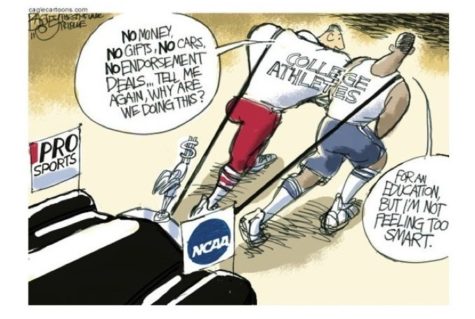I am Not Buying a New Device!

I am not Buying a New Device!
In the modern 21st century, it is becoming increasingly more challenging to be a DIY (Do It Yourself) type of individual, especially when it comes to repairing your electronics, appliances, farm equipment, etc. In some part, it is due to more complex consumer goods, but some obstacles we face as amateur mechanics are because of the companies purposefully designing their products to have a short life span and be difficult to repair.
Originally in the 1960s, when you purchased an electronic such as a refrigerator, washing machine, or camera, there was a belief that you owned the product and had the right to repair, modify it, or destroy your own property with no strings attached. Jason Bloomberg, a contributor to Forbes Magazine details that in the 21st century, small and large corporations are sneakily adding clauses to their EULA (End User License Agreement). These clauses state that the companies have the legal capabilities to take away your right as a consumer to modify, resell, or repair your product. Originally, companies would provide the customer with access to schematics, parts, repair tools, and even diagnostic tools. Unfortunately, if you were to search for schematics or parts to repair your device in today’s world, you wouldn’t be able to find any, unless you’re purchasing goods from a repair friendly company like HP or Dell. Even if you attempted to have a third party business do your repairs, they might be unable to repair your laptop because they may not have the parts, schematics, etc. If you went to the official company to have your devices repaired, they might tell you they can’t repair it (even though it can be repaired) or quote you a price more expensive than the product itself. Nowadays, if your refrigerator stops working, the most you can do is go to the nearest Best Buy and hope they have a reasonably priced new refrigerator.
A majority of people cannot just shell out a thousand dollars to purchase a new refrigerator. Businesses and consumers are starting to feel the financial burden and inherent injustice of not being able to find affordable and sustainable ways to repair their purchased valuables. Inevitably in response to the injustice, an organization now known as The Repair Association was created. The Repair Association is the central organization created to bring individuals, businesses, and nonprofits together to fight for the consumers’ “Right To Repair”. According to the Repair Association “Right to Repair” is a movement led by hobbyists, small business owners, third party repair businesses, consumers, etc. Some large organizations and companies that favor the bill to protect the users’ “Right to Repair” include IFIXIT, U.S. PIRG, and Electronic Frontier Foundation. The goal of the movement is to implement laws protecting consumers and third party businesses from dubious practices of large companies like Apple and John Deere. The “Right to Repair” movement holds six core beliefs across all supports. IFIXIT, a member of The Repair Association, details the six core beliefs that we, as the consumer, have the right, “to open everything we own,” “to modify and repair our things,” and “to unlock and jailbreak the software in our electronics.” Furthermore, we require access to, “repair information, “products that can be repaired,” and “reasonably priced, independent repair shops.” The movement was sparked by the increasingly shady practices of large corporations like Apple and John Deere. According to Mark Brown, a contributor to the Wired Magazine, to prevent consumers and repair companies from accessing the core components of their computer, Apple invented a new screw to be used on MacBooks. The specific screwdriver is only accessible to Apple repair shops. Kyle Wiens CEO of IFIXIT; a major 3rd party repair business and frequent contributor to the Wired Magazine details another instance of Apple’s manipulative practices. When Apple built into its software a particular set of code to determine inauthentic parts such as batteries, screens, and home buttons. This particular line of code, installed without the user’s consent or awareness. When the user turned back on their phone the code would disable the phone’s ability to start up permanently. When the user updated to the latest iOS, the update would make the phone unable to turn on, causing the user to lose all data not backed up, be unable to make a phone call, or even text. Also, the John Deere company builds a system preventing the owners of their product from replacing a part of their vehicle without having it approved.
Apple, John Deere, and other large corporations affected by the “Right to Repair” Act in a negative way are working together to ensure that the “Right to Repair” Bill is not passed on a national level. According to Jason Bloomberg of Forbes Magazine, Apple and John Deere’s main argument behind “Right to Repair” is that the bill is written is too broad and covers too many sectors of business. Lauren Goode, an editor at The Wired has been closely following the “Right To Repair” movement. In her article, “Right-to-Repair Groups Don’t Buy Apple’s Answers to Congress” Lauren cites that large corporations like Apple claim that only certified specialists can repair computers, or they risk seriously injuring themselves or others. The Wired continues by stating that Apple and John Deere claim that schematics and embedded chips in their devices are intellectual property, and they have the right to prevent people from repairing or modifying their devices to prevent proprietary software from being stolen by hackers or have their system compromised.
The “Right To Repair” act is currently being addressed in the Maryland General Assembly. With over 19 states opting in to create legislation to protect consumers, “Right To Repair” is bound to become a bill in Maryland. The question should be how will this affect consumers and producers in the years to come?
Resources:
https://www.ifixit.com/Right-to-Repair/Intro
https://marylandpirg.org/feature/mdp/right-repair

Hello, my name is Aron Bishop. I am currently a senior attending Sandy Spring Friends School(SSFS). This is the fourth year as a staff writer for the Wildezine....










